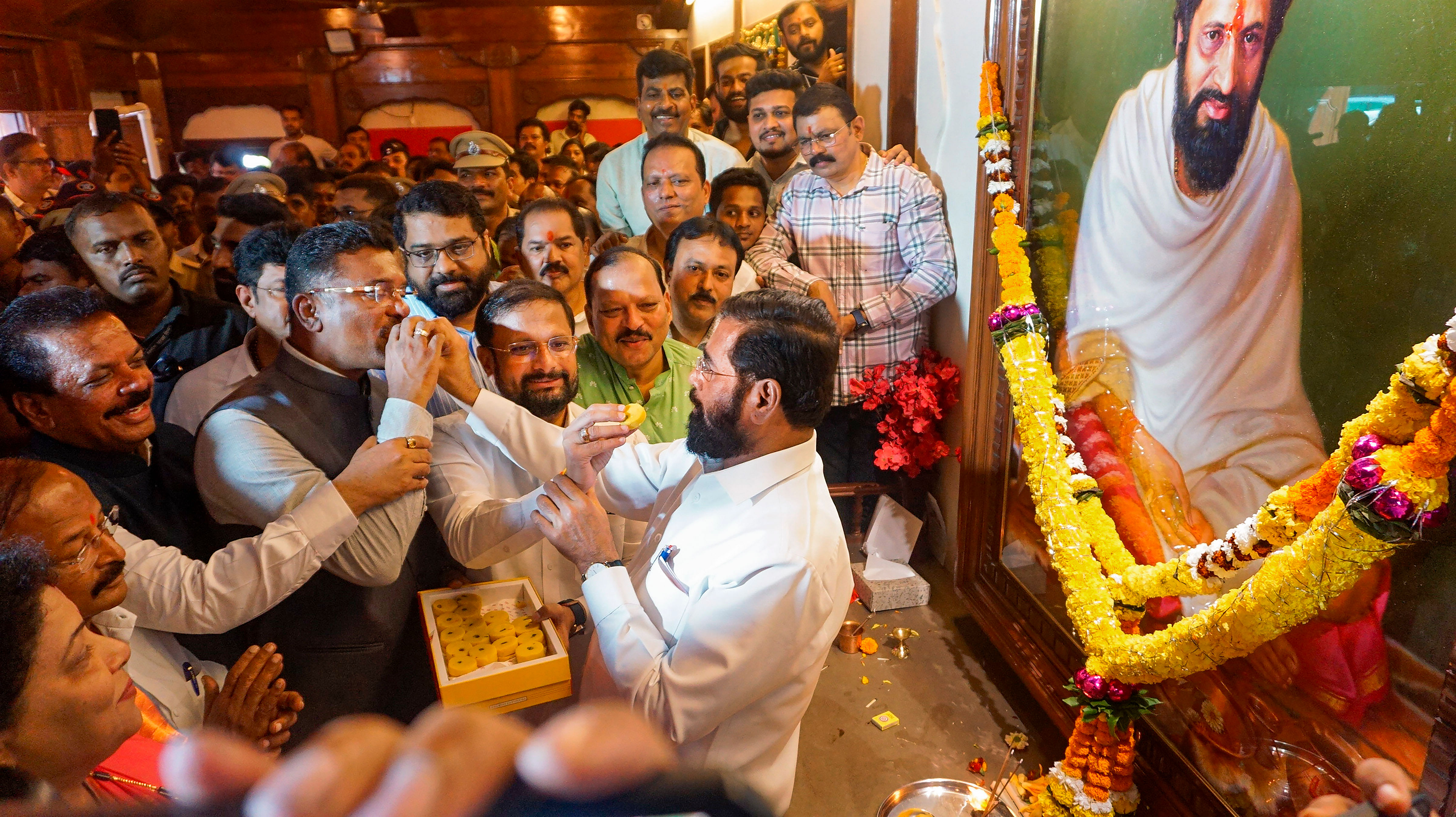
Maharashtra Chief Minister Eknath Shinde with supporters during celebrations of Shiv Sena MLA disqualification case verdict, in Thane, Thursday, Jan. 11, 2024. Maharashtra Assembly Speaker Rahul Narwekar on Wednesday held that the Shiv Sena faction led by Shinde was the 'real political party' when rival groups emerged in June 2022, and did not disqualify any MLA from the two camps.
PTI Photo
Maharashtra Speaker Rahul Narwekar’s ruling that the faction led by Chief Minister Eknath Shinde is the ‘real’ Shiv Sena and that it had earned no disqualification when the party split in June 2022, was on expected lines. Narwekar ruled that the then party chief Uddhav Thackeray had no power to remove Shinde from the party when the latter revolted and joined the BJP to topple the MVA government and form a new government. The Speaker held that the Thackeray faction had not provided any valid ground for disqualification of the members of the other faction. He maintained that the amended party constitution of 2018, which vested powers with the party chief, was not on the Election Commission’s records, and so could not be taken into account.
No Speaker has ever ruled against the interests of the ruling party, the party that he belonged to, in the matter of disqualification under the anti-defection law. Narwekar belonged to the BJP and could only have been expected to give a ruling that suited the present government. Though the Speaker is a constitutional authority and has to take a decision without prejudice and bias, it is not done in practice. Narwekar issued his ruling on the last day set for it by the Supreme Court, which had issued repeated directions to him to take an early decision. The court has observed in the past that “there is a growing trend of Speakers acting against the constitutional duty of being neutral.” The court had once removed a minister in Manipur after the Speaker kept the disqualification petition against him pending for years.
The ruling is a political setback for the Thackeray faction and marks another victory for the Shinde group. The Election Commission (EC) has already recognised the Shinde faction as the Shiv Sena and allowed it the use of the party’s election symbol. The Thackeray faction has challenged the EC’s decision in the Supreme Court. The decision on disqualification is also certain to be challenged. The court might take time to decide the case. The decision might become redundant because the state is set to have Assembly elections later this year. The Speaker also has to decide on a disqualification case relating to the NCP factions by January 31. Maharashtra has seen splits in two of its major parties, the Shiv Sena and the NCP, with the rebel factions going over to the BJP’s side. Even while the legality of the splits are examined by the Speaker and the courts, the real issue involved is political and will be decided by the parties’ ranks at the grassroots level and by the people at large in elections.